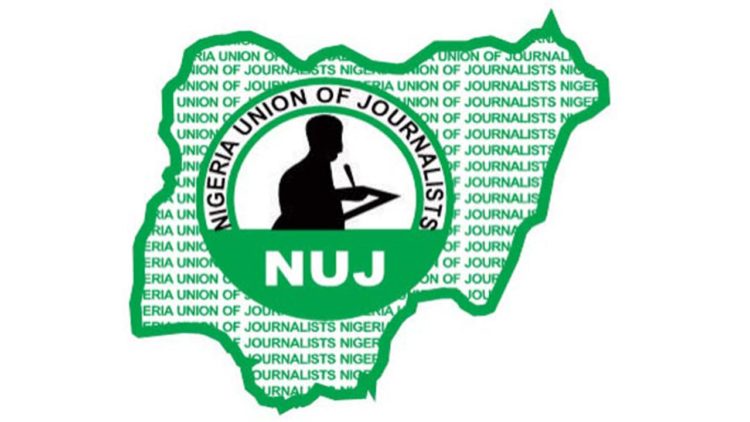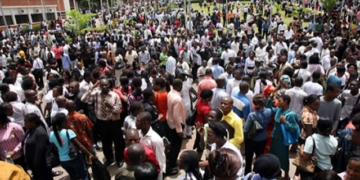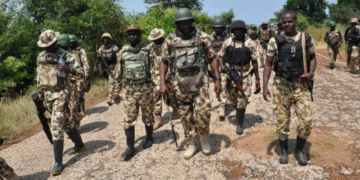Journalism have come to be appreciated the more in Nigerian democracy as it constitutionally occupies the Forth Estate of the Realm- serving as check and balances between the executive, legislature and judicial arms of government. Looking at the important position media practitioners occupy in the society, such as surveillance and correlation; it is pertinent to think of the reasons of the predominant nature of unethical practices among Nigerian journalists.
Journalists are saddled with a serious responsibility globally. These media practitioners are expected to carry the noble course of social responsibility to the society; which is, to inform, educate, enlighten and even entertain the audience. This is more pronounced in a democratic society. Part of the cardinal function of the media is to serve the watchdog role. That is, engaging on surveillance and correlating the society toward achieving common good. Journalists who work for public/government or private outfits are expected to serve societal interest through ethical and professional conducts. The job of the media practitioner is to provide the public with information they need to take rational decision on issues of societal concerns.
The news MEDIA survey the environment, report to the people in order to avoid uncertainties, and increase the probability that the audience will react to conflict and change in a rational way. Thus, the journalists in their surveillance activities scout round the environment and bring news of development, danger, threats to the national stability, threats to public welfare and so on to the people. Corruption of power by those in government can be curtailed when the people are well informed. The media purveys political information, which in turn enlightens the public, thus, enabling them to participate meaningfully in political affairs in their environment. Also, government needs information about their respective countries as well as other parts of the world about trends in population growth, technology innovations, water supply among other responsibilities to make policy decisions for their own country. The media surveys and purveys this information.
However, this does not seem to be the case with media practitioners these days.
According to communication scholars SantasTsegyu and Ezekiel Asemah have put it, “journalism profession has come under public scrutiny in contemporary times as a result of unethical practices by some journalists and media professionals”.
This unethical practice is reinforced by non-professionals who have over the years flooded the profession. Scholars in the media profession have over the years expressed serious concern on the influx of non-professionals into the profession, especially in government ministries, departments and agencies.
Though, Mac Bride Commission (1980) was of the view that the value of the larger society affects media performance, role, function and credibility; however, the following contemporary Nigerian values undermining media practice are conflict of interest, egocentrism and discrimination.
Consequently, it has been noted that the Nigeria cultural values also have influence on media practitioners. We can further reiterate that, Nigerian journalists/media practitioners cannot report any negative story that could affect their cultural norms or interest.
The Nigeria scenario entails media practitioners being accused severally in regards to flouting the professional standards of objectivity, balance, accuracy, fairness and accountability which are essential canons of the profession the world over. The consequence of this has resulted in the dwindling standard of the noble profession in the public domain and the loss of credibility in the activities of some media practitioners in the country.
The causes of financial inducement in the media practice may include: poor remuneration, advertisers influence, attitude of untrained journalists, fake journalists, laxity of media regulatory bodies and pressure from money bags. The effect of this is gross professional misconduct in the Nigeria media industry. The effect is that it demeans the journalists’ professional integrity and compromises the channel of communication, shift from the traditional watchdog role of journalism to a publicity-seeking outlet available to the highest bidders in the society, disregard for objectivity, balance, accuracy and truth, which form the soul of journalism and also the problem of loss of patronage, which naturally impacts negatively on the income of the press organization.
Commenting on political elites influencing journalism practice in Nigeria, Professor Ralph Akinfeleye draws a caution to media if they are touring the part of irresponsible, then it will be a great challenge to democracy consolidation. The press tends to perform journalism responsibly in a country that values social responsibility in its conception, organization, philosophy, and government. On the other hand, a country with a socially irresponsible press would have journalists who practiced irresponsible journalism, sensationalism, fatherhood bias, outright lies, propaganda journalism, and unethical practices. If these practices are not quickly curbed, the Fourth Estate of the Realm might metamorphose into the Fourth Estate of the Wreck.
Nigeria media landscape have mixed feelings on whether media practitioners that have been credited to the enthronement of democracy in 1999 still uphold the cannon of journalism or they are now carried away by conflict of interest. Thus, the sins of Nigerian journalists are numerous; ‘planted stories, spin, fiction writing, etc have become the order of the day.
Although, the Nigerian Union of Journalists parades a Code of Conduct in which in its Article I (i) referred to the Union as a professional body as well as a trade union. The Code, however, failed to state or identifies the body of knowledge to be imbibed by its members. Again, the membership provision was so loose that anybody that has anything to do with media organization can call him/herself a Journalist.
The provision provides for Public Relations Officers/Practitioners, those who are employed as editorial staff, those who had completed a probationary period of 12 months, etc. to be called Journalists, without stating any minimum qualifications. Also, no acceptable body to all the stakeholders was created or established to regulate the practice of Journalism and enforce its rules and regulations in Nigeria as done in other advanced countries of the world. For example, in 1952, Britain established the National Council for the Training of Journalists (NCTJ) in response to making the journalist responsible. The body was charged with the task of securing minimum standards for media practitioners. The body, subsequently, introduced a qualifying examination, the proficiency test, as a measure of control and career advancement for media practitioners.
The commercialization phenomenon poses a lot of challenges to the credibility of the news stories reported by Journalists because stories of events are usually arranged to suit their sponsors. Usually, the stories “add nothing tangible to the quality of life of the people” and “there is nothing journalistically newsworthy about them”.Furthermore, conflict of interest is an issue among Nigeria media practitioners which has seriously affected the output of the average Nigerian Journalist. The fluctuation between the professional requirements of objectivity, neutrality, impartiality, etc, and the societal norms and values, especially the social responsibility theory, has made media profession in Nigeria to be in a perpetual state of flux.
–Ngantem, writes from Safini Quarters, Jalingo, Taraba State.











